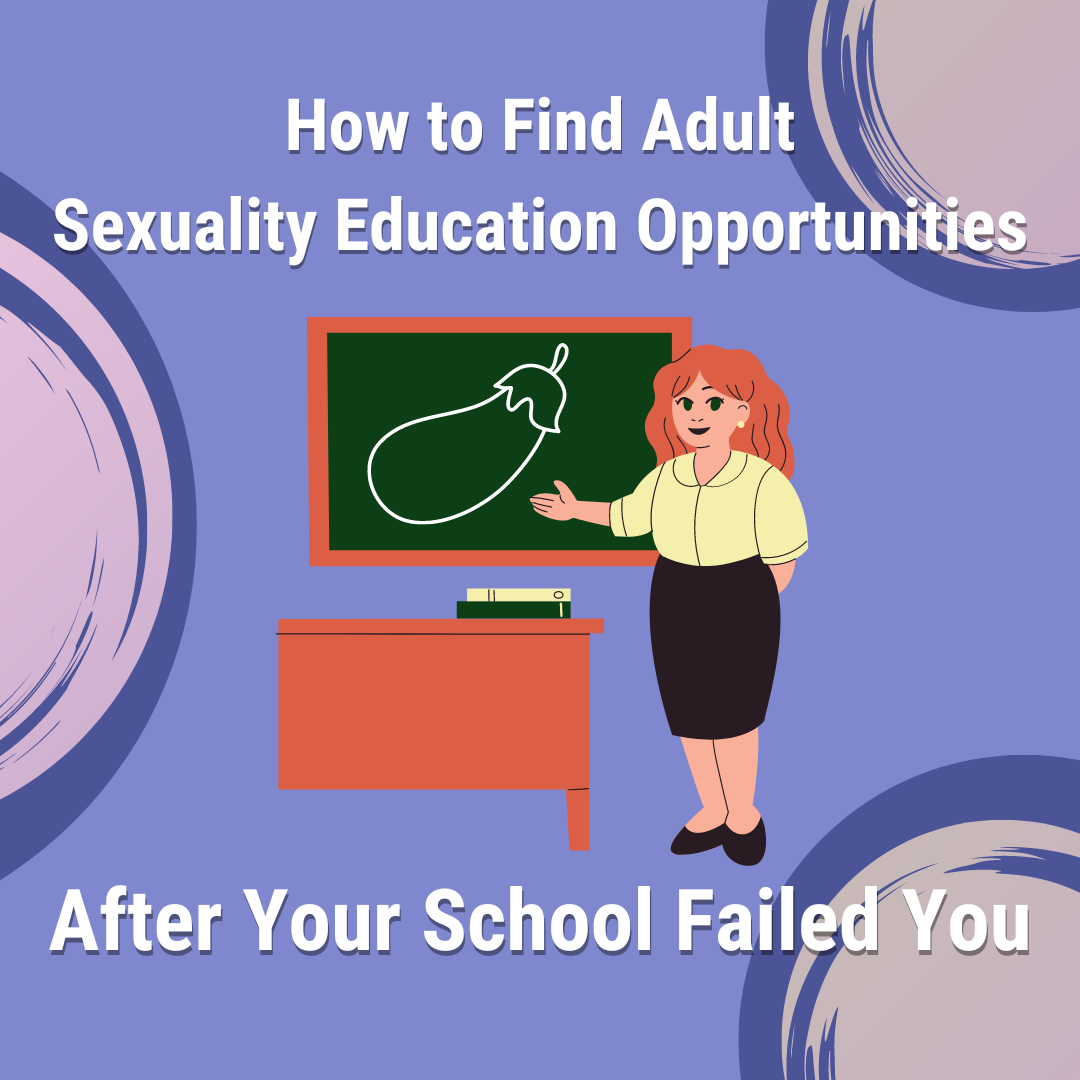Conversations about sexuality have certainly always been a part of our school life, but mainly in the form of gossipy whispers in the hallways or roars of abstinence in the classrooms. Unfortunately, healthy discussions about sexuality and relationship rarely (if ever) really made it into the curriculum. Growing up, most of us were taught more about the perils of getting naked with others and less about its potentially sublime perks. Considering sex as synonymous with devil-may-care “slut” behavior, deadly infections, zero self-worth, and ramshackle reputation is the package most of us were served by a sex-negative education culture. It’s no wonder that navigating sexuality in adulthood becomes more challenging and unpleasant. As we grow older, meet new people, and explore unfamiliar surroundings, we can find our needs concerning sexuality and intimacy becoming more present and acute. Without having the right vocabulary and comprehensive understanding of how to go about satisfying these needs, this can result in distressing and often destructive outcomes. So, if any of this applies to you and you’re looking to find healthy and pleasurable sexual information as an adult: don’t worry, we got you!
First, you should consider writing down all the information that was passed onto you by your school about sexuality. After that, sit with it for a while and try to separate what you think is accurate from what is not. This activity will not only help you to understand how much you know and how conditioned you’ve been about sex but also allow you to come face-to-face with the stigma and shame that you might have internalized over the years. This is often uncomfortable and can sure be a lengthy process. Sadly, there’s no magic wand that you can wave to become a responsible, sexually educated person (trust me, I have already looked for it!). So, don’t give up. The outcome is unquestionably worth all the work.
With the increasing influence of social media platforms and mobile apps, sexuality education has become more accessible than ever. From finding safer sex education online to learning about non-monogamous sexual experiences from relationship experts, sex tech has fast-tracked the spread of relevant information. There are also several sexuality-centered apps—including MŌN—that allow you to safely communicate and connect with other like-minded folks in the sexuality space.
Nevertheless, the rise in accessibility has also given space for misinformation to disperse all over the internet. Therefore, as accessible as sex information has become, it is crucial to seek peer-reviewed research, and expert advice that encompasses BIPOC, LGBTQIA+, and kink-inclusive, sex-positive guidance. If you’re simply going to listen and learn from a random non-expert on Instagram about what healthy sexuality looks like you’re failing yourself more than your school did educating you about sex. Again, trust me: there are hundreds of accounts talking absolute rubbish!
It’s wonderful that today everyone has a platform to share their opinions, but sex education simply cannot be substantiated based on singular personalized experiences. This is not to say that it’s bad to hear about other people’s sexual encounters but that it is vital to grasp the scientific, academic, and professional understandings of sexuality. One of the best ways to do this is to search for a list of certified sexuality educators and look out for their contributions both to the field and in the media. This might be in the form of podcasts like Dr. Justin Lehmiller’s Sex and Psychology podcast, Tara Michaela Jones’ educational space on Instagram, or even Sexual Health Alliance’s (SHA) Nymphomedia blog! You can also pick and choose which topics within the sphere of sexuality you need more clarification on and find specific professional counseling or coaching. For instance, if you need help navigating non-monogamous sexual and relationship experiences, check out Dr. Zhana Vrangalova’s free Open Smarter Training. Or if you want to discover queer sexuality education opportunities, Casey Tanner is one to look out for.
Moreover, you can absolutely prioritize discovering sexual information in your preferred learning structure. If you’re more of an audio learner, listen to interviews between sexperts; if you’re more of a reader, get cozy with Zachary Zane’s Boyslut: A Memoir and Manifesto. Besides, you can also attend virtual conferences with skilled sex and relationship scientists, researchers, therapists, and more offered by SHA. Apart from finding credible information online, make sure to also reflect on—maybe even keep a journal about—your unique sexual experiences. This is a great way to make sure that what you’re learning is also what you’re actively applying in your daily life.
Last but not least: look for learning opportunities that don’t just tell you how to have safer sex but also how to have it in the most pleasurable way possible. A lot of educational sources often only bring up the protection aspect of exploring sexuality and fail to recognize the importance of ohs-and-ahs. Communication with yourself and with your partner(s) is key to understanding what feels pleasurable and safe to you at the same time. The more you approach sexuality in this manner, the more exciting and fulfilling the results will be.
Written by Shreya Tomar.




